
From Ukraine peace plans to Kazakh uranium—all that and more in our new nuclear digest
Our November Nuclear Digest by Bellona’s Environmental Transparency Center is out now. Here’s a quick taste of just three nuclear issues arising in U...
News

Publish date: April 28, 2014
News
Suren Gazaryan, a Russian zoologist turned crusading activist whose dogged investigations cast a glaring spotlight on the massive corruption and ecological devastation behind the Kremlin’s assault to hold the Sochi Olympic Games has won the world’s most prestigious environmental award, Bellona has learned.
The Goldman Environmental Foundation told Bellona that Gazaryan was receiving its annual award – often referred to as the “environmental Nobel Prize” – for his untiring efforts to expose the naked theft of protected public lands and nature preserves by Russian President Vladimir Putin and his political and business cronies for luxury mansions and profitable Olympic venues. The Sochi Olympics are said to have cost $51 billion, the most expensive ever, and various figures, such as former Deputy Prime Minister Boris Nemtsov, say $30 billion of that was lost to graft alone.
“Given how repressive the political environment in Russia can be for activists, Suren’s achievement is nothing short of remarkable,” David Gordon, executive director of the Goldman Environmental Foundation, told Bellona. “He challenged government officials’ illegal land grabs in a very public way, demonstrating enormous courage and determination.”
Gazaryan receives $175,000 award in exile from Russia after he was forced in 2012 to seek political asylum in Estonia following an averted fisticuffs with guards on the yacht pier serving Putin’s gaudy, massive baroque mansion, built illegally on kick-backs and taxes in the protected forests along the Black Sea coast. The Goldman 25th Annual Awards Ceremony will be held this evening at 17:30 California time and live streamed on the Goldman Prize YouTube channel.
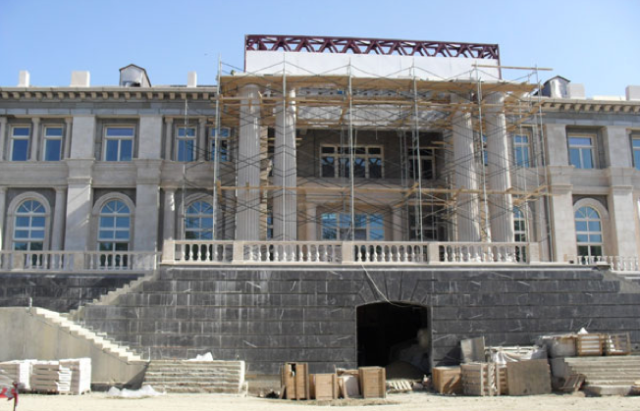
“The biggest threat to the environment in Russia is the government and the absence of any responsibility of authorities,” Gazaryan told Bellona in a telephone interview from San Francisco, where the Goldman Environmental Foundation is based.
“There are no mechanisms for society to influence power to prevent such projects as the Olympic environmental devastation or to prevent legislation that would be dangerous to the environment,” he said. “The ties between society and power in Russia have been lost.”
His interview with Bellona after he learned of the award, however, shows Gazaryan to be broodingly circumspect about what his newfound renown has cost him, and whether it will have any effect on the wrongs he sacrificed his home and family and risked his life to right. He was also quick to deflect sole credit for the award.
“It’s not only for me,” he told Bellona. “It is a merit for (our) organization – an acknowledgement of our work.”
Greed and ecological wastelands revealed
Gazaryan and his colleagues at Environmental Watch on the North Caucasus (EWNC) labored meticulously for over seven years to document the environmental, legislative and commercial plunder of the pristine protected nature reserves surrounding Sochi, which stretched into the country’s highest corridors of power.
The group’s endeavors culminated in a damning report on nepotistic palaces and sweetheart business deals for Russia’s political elite, laws rewritten or discarded to accommodate the Olympic build, the poisoning of Sochi’s drinking water sources, illegal ground water-contaminating landfills, the decimation of Black Sea salmon spawning areas, increased air pollution, deforestation of protected tree species, toxic landslides from highway builds, the displacement of endangered birds’ migratory patterns, and the annihilation of UN protected World Heritage Site wetlands by recklessly discarded toxic Olympic construction waste.
EWNC also exposed breathtaking neglect by the International Olympic Committee (IOC) of its own “Zero Waste” policies for the Olympic Games and its requirements that Olympic host countries obey human rights norms and press freedoms. Less that 2 percent of Olympic structures met green standards, and nearly all were constructed without environmental impact studies, or impact studies that were back-dates by authorities. Reporters, included those from Bellona, were harassed, followed and detained by police in the lead up to the Games. EWNC also unearthed the shady backroom deals between Putin’s minions and the IOC that ensured Sochi – a sub-tropical locale – would receive the 2014 Winter Games.
Speaking to Bellona, Gazaryan spared no criticism for the IOC, who he accused of venality, neglect of the environment and human rights, of clutching after the apron strings of huge corporate sponsors – and of being completely beyond reform.
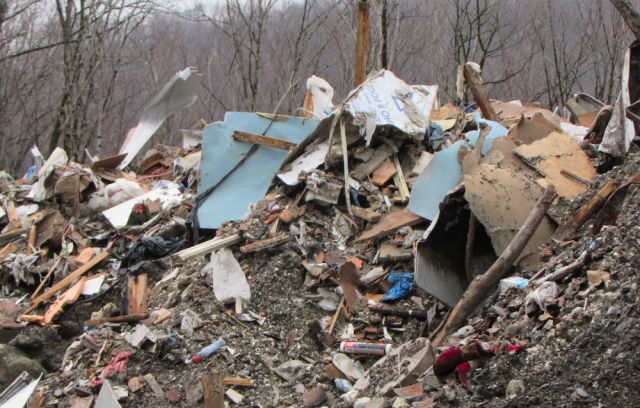
“I think it’s totally pointless to talk about [IOC reform] because [it] has shown itself to be completely negligent on questions of the environment and human rights and completely disregarding of society,” he said, adding, “I don’t think its possible to reform them to a point where they actually feel any responsibility.”
He said any attempts to confront the IOC prior to launching the Games were fruitless.
“When they made the decision to host the games in Sochi, the majority of rules regarding the conduct of the Games were violated,” he said. “But that didn’t have any influence on the IOC – they just lied and said everything was okay and going according to plan, as far as they were concerned, relative to what they heard from the Russian [Sochi Olympic] Organizing Committee.”
The IOC head of media relations, Emmanuel Moreau, responded to Gazaryan’s comments Monday in an email to Bellona, saying: “The IOC has shown consistently that when there are tangible allegations on matters directly linked to the staging of the Games, we take the appropriate action”
“Whilst we are aware of some of the complaints that have been put forward by NGOs and have communicated those to the Sochi 2014 Organizing Committee to pass on to their partners in charge of construction, one has also to consider the local context,” she wrote. “The Sochi 2014 Games are believed to be the first global sports event in Russia to have taken environmental concerns and the principles of sustainability into consideration.”
During the Games, when ecological violations, human rights abuses – and even the beatings of prominent protestors and activists – became routine, Moreau consistently responded that the incidents of waste and police brutality were not “Games-related” and warranted no investigation. She told Bellona in earlier emails that such decisions were justified on the basis of information supplied to the IOC by the Russian Sochi Olympic Organizing Committee.
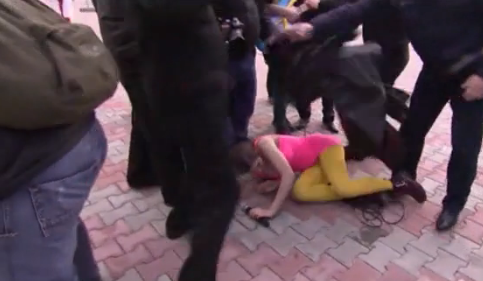
“Gazaryan personifies the plight that Russian environmentalists and Olympic critics are living through,” said Bellona’s general director, Nils Bøhmer. “The EWNC did the job that the IOC should have done in the first place, and they are now paying a far-too high price for it.”
Bøhmer said he has personally delivered the EWNC report to Gerhard Heiberg, Norway’s representative to the IOC. Bellona is still awaiting Heiberg’s response.
EWNC’s investigations were further met in Russia by police beatings, harassment, massive surveillance, arbitrary detentions, and prison sentences. Russian security services successfully scuttled the EWNC report’s release to the thousands of international journalists in Sochi during the Games. But the group unleashed it in Moscow instead – to no less shock.
The group was told not to publish its report by Russia’s federal counterterrorism and anti-extremism bureaucracy to avoid any “harm to the country.” When the report appeared, it triggered yet further and more ominous investigations of EWNC’s activities.
Yevgeniya Chirikova, a Russian Goldman Laureate from 2011 for her ultimately unsuccessful defense of the Khimki old growth forest north of Moscow from felling to make way for a high-speed freeway, experienced her own share of violence and detentions by authorities set on her by intertwined commercial and government interests.
But she told Bellona in a telephone interview that what EWNC and Gazaryan have suffered “is unprecedented in scope and violence – a symptom of conditions that are quickly deteriorating to being even worse for local environmentalists, which started with the Olympics.”
Will the award be allowed to do any good in Russia?
By his own account, Gazaryan receives the award at a time when the money and the activities of the EWNC and jailed colleagues will benefit little from it.
“I don’t have a sense of overwhelming joy. But, of course, I am a somewhat glad,” he told Bellona. “This (prize) is, of course, a very important acknowledgement that is very influential.”
But the EWNC itself is meanwhile in tatters, the government having laid waste to it in the wake of the Olympics. Earlier this month it was shut down and its bank accounts frozen by Russia’s Ministry of Justice over alleged violations of the Kremlin’s famous repressive law requiring NGOs receiving money from abroad to register as “foreign agents.” Dmitry Shevchenko, EWNC’s co-director, told Bellona Friday that, “We essentially no longer legally exist – everyone who is doing anything is doing it on a volunteer basis. We can’t fund our activities, and anything we do is considered illegal.”
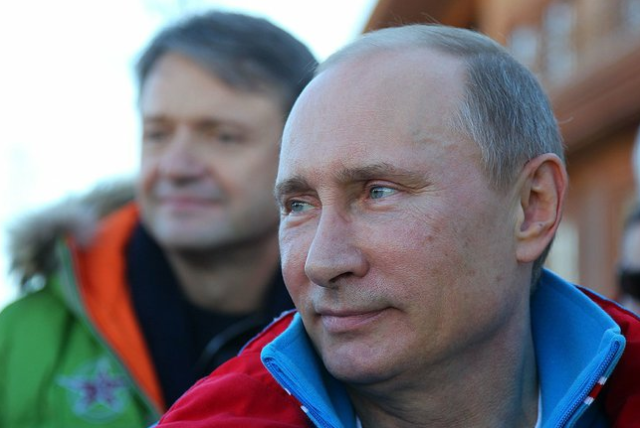
The organization has existed since the early 1990s, has 110 members, barely any of them paid, and has, by Gazaryan’s reckoning, received perhaps three or four foreign grants over the past decade.
But Gazaryan and other members of EWNC interviewed by Bellona say that any assistance from their colleague’s winnings could get them into deeper trouble, thanks to the “foreign agents” law.
“The money is not going to help because it will be interpreted through propaganda as western influence,” said Gazaryan by telephone. “That the US Justice Department has again paid off the spy Gazaryan, so financial help from the prize from me to the organization could make the situation even worse.”
Gazaryan himself has been wandering between Estonia and Germany for the last two years – divorced from his wife because of the strained circumstances of exile and estranged from his two daughters – in search of employment and a place to call home.
“Partially, I plan to use this money to find myself a place to live,” he said. “I have had terrible problems since leaving Russia in finding proper accommodation.”
Recently, he finally found work in Bonn, Germany pursuing the same solitary research he was doing before the Kremlin storm descended on EWNC: studying ways to preserve natural habitats for bats.
From palaces to jails
Though the 2012 incident with Putin’s security guards at the no-longer-secret palace resulted in no injuries, Gazaryan was already in hot water with his EWNC colleague and friend, the geologist Yevgeny Vitishko, for exposing yet another illegally built crony mansion in Sochi National park – this one for Alexander Tkachev, the Governor of the Krasnodar Region, where the Sochi Olympics took place.
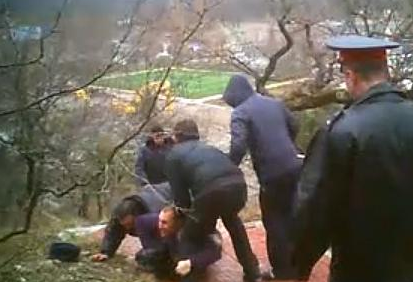
Gazaryan was all the less popular among authorities for successfully stopping the 2009 build of another monstrous residence in a deregulated wildlife reserve on the Black Sea coast near Sochi, this one for former President, now Prime Minister, Dmitry Medvedev. Gazaryan arranged a human chain to block the bulldozers, and Medvedev eventually backed down, turning the area into the 10,008-hectare federally protected Utrish Reserve. The event set an important legal precedent for federally protected lands in the Black Sea, but also painted a target on Gazaryan’s back.
The demonstration against Tkachev’s manor by about 12 people led by Gazaryan and Vitishko in 2011 resulted in someone spray-painting “Tkachev is a Thief” and “This is our Forest” on the construction fence surrounding the lavish summer abode. Witnesses who’ve spoken to Bellona say neither Gazaryan nor Vitishko had anything to do with the graffiti. In a twist of irony, the fence is said not even to exist by Krasnodar Regional forestry officials – yet another testament to the secretive nature of the Olympic palace drive.
Gazaryan and Vitishko were that summer given as punishment the unwieldy conditions of three-year suspended sentences, with curfews, probation officer visits and severe restrictions on movement.
But the additional charge of “attempted murder” prosecutors told Gazaryan they would bring because of the incident at Putin’s dock – based on the testimony of a guard, who said Gazaryan had threatened his life – was simple math: Staying in Russia guaranteed Gazaryan a lengthy prison sentence.
Vitishko’s plight
On February 12, the Krasnodar Regional Court turned down an appeal initially filed by Vitishko and Gazaryan to have their suspended sentences overturned as disproportionate punishment for the charge of defacing the fence surrounding Tkachev’s illegal forest residence. Instead, the court sentenced Vitishko to a three-year stretch in a penal colony – a sentence Gazaryan says he doubtless would have shared had he been in court with his friend.

The conditions for Vitishko pleading his appeal were made all the more abstruse by his 15-day administrative detention on February 3 for allegedly swearing in public, which ensured he would be sitting in jail in his hometown of Tuapse – 72 kilometers northwest up the coast from Sochi and throngs of international journalists – and a 100 kilometers south of the Krasnodar Regional courtroom where the appeal was held.
Vitishko was beamed into the Krasnodar court via a crackly, nearly inaudible television link-up. After two minutes deliberation, the judge overturned the appeal and sent Vitishko on a confusing, secretive path to a penal colony in the Tambov Region, 1000 kilometers north of Krasnodar. His wife and two sons, 15 and 5 remain at home waiting for him. Amnesty International has declared Vitishko a Prisoner of Conscience.
From the distance of Western Europe and comparative freedom, the circumstances of Vitishko’s incarceration and the confusion that surrounded it are things Gazaryan thinks about with no small pang of guilt.
“If it were still a question of whether I could be tried and sentenced in Vitishko’s place and he could go free, I would gladly take that variant,” Gazaryan said.
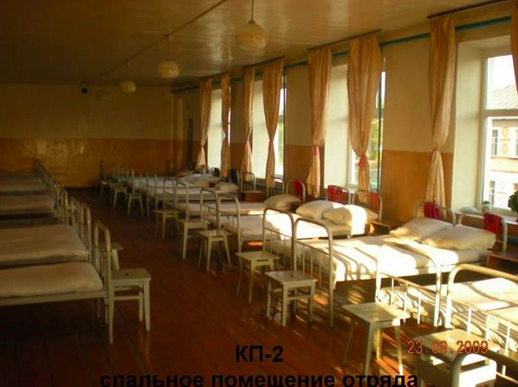
He added that he would like to put his prize money to use for Vitishko, but added: “In principle, there is money” for helping Vitishko, “but they don’t know what to do with it. Even this (prize) money is not going to help. People are gathering money […] but unfortunately we have no way of helping him.”
To stay or to go?
The case of the two separated friends, one stuck behind bars and the other stuck behind borders, is a stark illustration of the mortal consequences that activists that would challenge Putin’s imposed status quo must weigh.
“Under Putin, environmental organizations don’t have a good future,” said Gazaryan. He said criticism of the Russian government by ecological activists “was criticism to which the authorities had no answer because what they have been doing to the environment could not possibly be justified.”
“So they just started pressuring these activists,” he said. “I don’t think conditions for any activists – environmental or otherwise – will improve while Putin is still in power.”
Staying to fight leads at the very least to harassment, though more certainly jail. To go means leaving behind a familiar way of life. Both cases mean indefinite separation from family and loved ones, or, in Gazaryan’s case, the loss of a marriage and no guarantee of seeing his daughters grow up.
“When the situation is critical and people begin to leave (the country), they must be certain to accept that they will not be able to continue their lives […],” said Gazaryan. “For example, many, such as Vitishko, didn’t leave because they were not sure that they would be able to survive life abroad.”
As for Vitishko, he told Bellona in his last interview before he was deposited in jail and the Gulag that he had neither wanted to flee, nor did he resent Gazaryan for doing so. He further said he was not afraid to go to jail.
“If going to a prison colony helps show the international community, or at least the International Olympic Committee, that they should give the Olympics to countries that can actually handle them responsibly, then I have succeeded in sending part of the message I want to send, “Vitishko told Bellona in Tuapse seven days before he was arrested on the bogus swearing charge.
But that is a thin salve for Gazaryan, who misses his friend and is not certain when, or if, they will meet again.
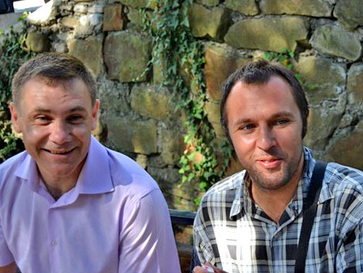
“Of course I wish that [Vitishko] were with me, but there is nothing to be done about that,” he said.
What is left to do?
According to Gazaryan, there is little left for Russian environmental activists but to seek a resonance for their message abroad. He said Western countries have to take a tougher stance against Russia, ignore its paranoia, and help civil society organizations with financial, moral and legal assistance.
“At the very least there is the possibility of building an informational background abroad for [activists’] voices, so that people understand what Russia is, especially in those countries that surround Russia, for instance Norway,” said Gazaryan.“So that they understand that they are not dealing with a normal European country, but rather a group of thugs and bandits who have come to power.”
The decimation of the Sochi areas seems complete. According to statements to Russian media by Dmitry Kozak, the deputy prime minister who was the point man on the Olympic build, another $7 billion – on top of the record-breaking $51 billion spent to construct and host the Games – must be spent on Sochi infrastructure before it crumbles into the sea.
Liya Vandysheva contributed to this report.

Our November Nuclear Digest by Bellona’s Environmental Transparency Center is out now. Here’s a quick taste of just three nuclear issues arising in U...

For three years now, Bellona has continued its work in exile from Vilnius, sustaining and expanding its analysis despite war, repression, and the collapse of international cooperation with Russia in the environmental and nuclear fields

The Board of the Bellona Foundation has appointed former Minister of Climate and the Environment Sveinung Rotevatn as Managing Director of Bellona No...

Økokrim, Norway’s authority for investigating and prosecuting economic and environmental crime, has imposed a record fine on Equinor following a comp...